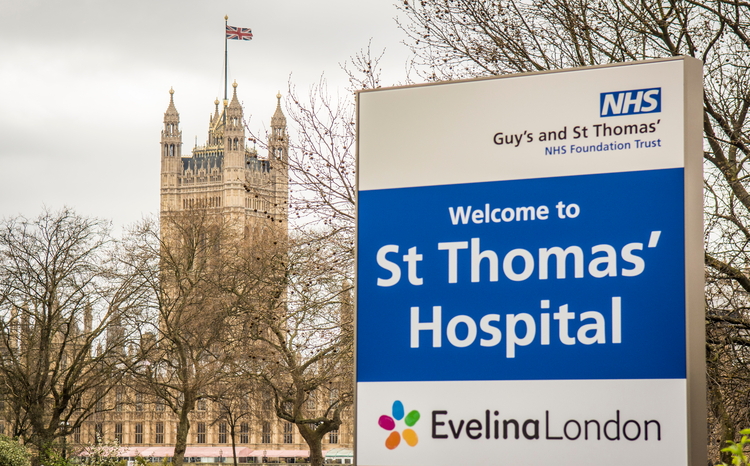Blood transfusion IT systems restored at Guy’s and St Thomas’
- 3 October 2024

- Ian Abbs, chief executive at Guy’s and St Thomas’ NHS FT, confirmed that blood transfusion IT systems have been fully restored
- Pathology services across south east London were disrupted by the ransomware attack on Synnovis in June 2024
- The trust is once again able to issue all blood group products for transfusions
Guy’s and St Thomas’ NHS Foundation Trust is once again able to issue all blood group products for transfusions, following the cyber attack on pathology provider Synnovis.
NHS Blood and Transplant (NHSBT) urgently called for donations of O Positive and O Negative blood to boost stocks after the ransomware attack in June 2024, which disrupted services in south east London.
More type O blood was needed to support London hospitals to carry out surgeries, because it is safe to use when hospitals do not know a patient’s blood type or cannot match their blood.
However, Ian Abbs, chief executive at Guy’s and St Thomas’ NHS FT, confirmed in an email to staff on 1 October 2024 that the blood transfusion laboratory IT systems at the trust have been fully restored.
In the email, seen by Digital Health News, Abbs said that he was writing to share “positive news” about the trust’s recovery from the criminal cyber attack.
“As you may have seen from the clinical alerts issued over the past week, we have now successfully reconnected the blood transfusion laboratory IT systems which we have been unable to use since the attack.
“This has meant that, since then, we have been unable to perform group specific cross-matching at scale for blood transfusions, and have been reliant on using O type blood as it is safe for everybody.
“From today, I am pleased to say that we have been able to issue all blood groups for transfusions,” Abbs said.
He added that this was the result of a “phenomenal effort from colleagues across the trust and Synnovis, who have been working relentlessly”.
In an update on 19 September 2024, NHS London confirmed that GP blood testing services across south east London boroughs, which were disrupted by the cyber attack, had been restored and staff were “working hard to fully restore blood transfusion services in the next few weeks”.
More than 10,146 acute outpatient appointments and 1,705 elective procedures have been postponed across the two most affected trusts, King’s College Hospital NHS FT and Guy’s and St Thomas’ NHS FT, since Synnovis was hit.
Speaking at the Health Excellence Through Technology conference on 24 September 2024, Beverley Bryant, strategic advisor in the frontline digitisation team at NHS England said that the cyber attack on Synnovis might not have happened if two factor authentication had been in place.
Bryant was joint chief digital information officer at Guy’s and St Thomas’ NHS FT and King’s College Hospitals NHS FT in June 2024 when the attack took place.
Meanwhile, the Department of Science, Innovation and Technology has said that the Cyber Security and Resilience Bill, which is due to be introduced to Parliament in 2025, will “prevent similar attacks” to the one on Synnovis.
Digital Health News contacted NHSBT for comment.




